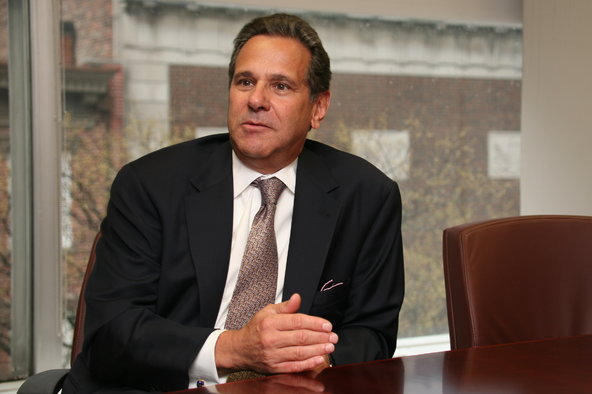 Chester Higgins Jr./The New York TimesThe power of James Schiro, the lead director of Goldman Sachs, has been increased after an accord with a shareholder.
Chester Higgins Jr./The New York TimesThe power of James Schiro, the lead director of Goldman Sachs, has been increased after an accord with a shareholder.
Goldman Sachs directors are getting a pay raise.
Goldman’s directors, who were already among the best-compensated corporate directors in the country, will receive an additional 500 shares, for 3,000 shares a year in compensation, according to a regulatory filing submitted Friday.
Related Links
In 2012, the average compensation for a Goldman director was $447,622, according to compensation data provider Equilar. This was down from 2011 when the average compensation was $488,709. Still, some of the firm’s 13 directors made more than $500,000 in 2012 because they led a committee, which pays extra.
Goldman, in the filing, said directors received a raise because of the “increase in demands” placed on directors “particularly considering that during 2012 all them served on each of our board’s standing committees as well as the additional oversight responsibilities required by recent laws and regulations.”
The additional 500 stock units, which have a current value of almost $75,000, are on top of an annual retainer of $75,000 or 532 shares. All told, Goldman’s board met 12 times in 2012.
Goldman has previously defended its pay for directors, saying the bulk of the compensation is in stock that directors cannot touch until after they have left the board. That arrangement, the firm says, aligns directors’ interests with those of shareholders.
The data on director pay was part of a grab bag of information about the company in the filing, which included the pay of Goldman’s chief executive and chairman, Lloyd C. Blankfein, and a list of proposals shareholders will vote at the firm’s annual meeting, which is May 23 in Salt Lake City.
Mr. Blankfein also received a raise. He made $21 million in compensation in 2012, up from $12 million in 2011. Gary D. Cohn, his second in command, made $19 million last year, up from almost $11.9 million in 2011. Investors will vote on four shareholder proposals at the annual meeting. One of the proposals asks the board to “immediately engage the services of an investment banking firm to evaluate alternatives that could enhance shareholder value including, but not limited to, a merger or outright sale of the company, and the shareholders further request that the board take all other steps necessary to actively seek a sale or merger of the company on terms that will maximize share value for shareholders.”
Goldman’s board is recommending shareholders vote against this proposal, saying it will “continue to pursue strategies” that it believes will achieve shareholder value.
What is not in the proxy is also noteworthy.
Earlier this week Goldman said it had reached a deal with the CtW Investment Group, an organization that advises union pension funds, to put the brakes on a vote on a proposal to split the roles of chairman and chief executive.
Under the agreement, Goldman is enhancing the powers of James J. Schiro, the board’s lead director. Mr. Schiro, for instance, will now have to set the agenda for the board, instead of merely approving it.
“We’ve had a constructive engagement with our shareholders, and believe that the enhancements we have made further solidify the independence of the board,” a spokesman for Goldman said in an e-mailed statement.
The question of whether a chief executive should also be chairman has generated discussion among shareholders of big banks. At JPMorgan Chase the board favors the dual role for Jamie Dimon and is working to shore up support among shareholders, who will vote on the issue next month at that bank’s annual meeting.
Article source: http://dealbook.nytimes.com/2013/04/12/goldman-directors-get-a-pay-raise/?partner=rss&emc=rss
